THC"-ként írják le." De vajon tényleg megfelel ennek az állításnak, vagy a THCO egyszerűen csak a jól ismert Delta-9 THC egy újabb változata egy csavarral?
A kérdés, ami sokakat foglalkoztat: A THCO valóban pszichoaktív kannabinoid? Ebben a cikkben megvizsgáljuk a THCO kémiai összetételét, pszichoaktív tulajdonságait, hatásainak intenzitását, és azt, hogy hogyan viszonyul más kannabinoidokhoz. A végére reméljük, hogy feltárjuk az igazságot e feltörekvő kannabinoid mögött és a helyét a kannabiszfogyasztás világában.
Mi a THCO?
 THCO a Delta-9 THC, a marihuána elsődleges pszichoaktív vegyületének szintetikus származéka. Ez a módosítás akkor következik be, amikor a THC-molekulához egy acetátcsoportot adnak hozzá egy acetilálásnak nevezett kémiai folyamat révén. Az eredmény egy olyan kannabinoid, amely állítólag erősebb, mint a hagyományos THC, és egyes felhasználók szerint a hatása erősebb és tartósabb.
THCO a Delta-9 THC, a marihuána elsődleges pszichoaktív vegyületének szintetikus származéka. Ez a módosítás akkor következik be, amikor a THC-molekulához egy acetátcsoportot adnak hozzá egy acetilálásnak nevezett kémiai folyamat révén. Az eredmény egy olyan kannabinoid, amely állítólag erősebb, mint a hagyományos THC, és egyes felhasználók szerint a hatása erősebb és tartósabb.
Igazán érdekes, hogy THCO a természetben nem fordul elő a kannabisz növényben. Ehelyett más kannabinoidokból szintetizálják, mint például Delta-8 THC vagy Delta-9 THC, laboratóriumban. Bár maga a THCO nem fordul elő a természetben, hatása és hatékonysága hullámokat vet a kannabiszpiacon.
A THCO pszichoaktív tulajdonságainak megismerése
Nos, hogy közvetlenül válaszoljak a kérdésre: A THCO valóban pszichoaktív kannabinoid?
Igen, THCO egy pszichoaktív kannabinoid, de milyen mértékben? A "pszichoaktív" kifejezés azt jelenti, hogy az anyag hatással van az elmére, a hangulatra vagy a tudatra. Más THC-vegyületekhez hasonlóan a THCO-nak is vannak pszichoaktív hatásai. Azonban ezen hatások intenzitása az, ami megkülönbözteti a THCO-t más kannabinoidoktól.
Potency and Intensity
A hagyományos Delta-9 THC-vel összehasonlítva a THCO sokkal erősebb. Sok fogyasztó arról számol be, hogy a THCO sokkal erősebb mámort eredményez, amely tovább tarthat, mint a hagyományos THC hatása. Valójában a THCO vélhetően kétszer-háromszor erősebb, mint a Delta-9 THC. Ezt a hatékonyságot a THCO-ban található acetát-módosításnak tulajdonítják, amely nemcsak az erejét növeli, hanem azt is megváltoztatja, hogy hogyan kötődik a szervezet kannabinoid-receptoraihoz.
Egy tipikus THCO-mámort úgy írják le, hogy több Kezdés és időtartam
Az egyik legfontosabb jellemző, amely megkülönbözteti a THCO-t a Delta-9-től és más kannabinoidoktól, a késleltetett hatáskezdet. A hagyományos kannabisztermékekkel ellentétben, amelyek szinte azonnal hatnak a fogyasztás után, a THCO 20-30 percig vagy tovább tarthat, amíg hatni kezd. Ez a késleltetett beállás félrevezető lehet a felhasználók számára, akik a hagyományos THC azonnali hatásához vannak szokva, ami arra készteti őket, hogy a szükségesnél többet fogyasszanak. Mihelyt a THCO hatása elérkezik, általában jelentősen tovább tart - néha akár 8-10 óra - a felhasználóknak hosszabb ideig tartó eufóriát, relaxációt és önvizsgálatot biztosítva. Míg sok fogyasztó a THCO-t "pszichedelikus" tulajdonságokkal jellemzi, fontos tisztázni a különbséget a psychedelics and strong psychoactive substances. A valódi pszichedelikus szerek - mint például LSD vagy psilocibin (varázsgomba) - vizuális és hallucinációkat, mélyreható érzékelési változásokat és mély, gyakran spirituális önvizsgálatot eredményez. THCO azonban nem következetesen ilyen hatásokat vált ki a felhasználóknál. Kifejezettebb eufóriát, relaxációt és torz időérzékelést okozhat, de nem okoz olyan intenzív látványtorzulások vagy hallucinációk, amelyek jellemzően a pszichedelikumokhoz kapcsolódnak. Röviden, a THCO erősebb mámort okozhat, mint a hagyományos THC, és egyes felhasználók mélyebb mentális vagy érzékszervi élményt tapasztalhatnak, de nem teljesen egyezik a hagyományos pszichedelikus szerek jellemzőivel. Azzal kapcsolatban, hogy a THCO "egészséges"-e, a válasz nem olyan egyszerű, mint amilyennek látszik. Mint sok kannabiszból származó anyagnak, a THCO-nak is vannak jótékony és potenciálisan káros hatásai, attól függően, hogy hogyan használják. A THCO pozitív aspektusai: A THCO egészségügyi kockázatai: Míg a THCO felelősségteljes használat esetén nem káros eleve, fontos megérteni, hogy mint minden erős anyagot, ezt is óvatosan és mértékkel kell fogyasztani. A legjobb, ha egészségügyi szolgáltatóval konzultálsz, ha aggályaid vannak az egészségeddel kapcsolatban. Hasonlítsuk össze a THCO erejét más kannabinoidokkal: A THCO-t potencia miatt elsősorban olyan tapasztalt felhasználóknak ajánljuk, akik már ismerik az erős THC-alapú termékek hatásait. A kezdőknek a THCO használatát a hatás intenzitása miatt kerülniük kell. Míg a THCO egy aktív, pszichoaktív kannabinoid, THCA (tetrahidrokannabinolsav) a nem pszichoaktív prekurzor. A THCA a nyers kannabiszban található, és csak melegítés hatására válik pszichoaktívvá, ez a folyamat a dekarboxilációnak nevezett folyamat. Főbb különbségek a THCO és a THCA között: Összefoglalva, bár mind a THCO, mind a THCA a THC család része, tulajdonságaik és hatásuk kémiai szerkezetük miatt jelentősen különböznek egymástól. A THCO gumik és más THCO ehető termékek a kannabisz dohányzásának vagy párolásának alternatívájaként egyre népszerűbbek. Ezek az ehető ételek THCO-val vannak átitatva, és diszkrétebb, hosszabb ideig tartó élményt nyújtanak, mint az inhalált kannabisztermékek. A THCO Edibles előnyei: A THCO Edibles lehetséges hátrányai: Amint már említettük, a THCO sokkal erősebb, mint a Delta-9 THC, de vajon jelentősen különbözik-e a hatása? A fő különbség a mámor intenzitásában és tartósságában rejlik. Míg a Delta-9 THC gyorsan kezdődő hatást biztosít, addig a THCO késleltetett kezdete és hosszabb időtartama intenzívebb és néha nyomasztó élményt jelenthet. Key differences: A Delta-8 THC-t úgy hirdetik, mint egy a Delta-9 THC enyhe változata, és bár gyakran dicsérik, hogy lágyabb, kevésbé intenzív mámort eredményez, a THCO sokkal erősebb, és erősebb hatású lehet. Key differences: Mint minden erős anyag, a THCO is potenciális kockázatokkal jár. Erőssége miatt a túlfogyasztás hatásai eléggé nyomasztóak lehetnek. Azok a felhasználók, akik nem ismerik az erejét, szorongást, paranoia, vagy hallucinációk, ha túl sok THCO-t fogyasztanak. A THCO-t mint szintetikus kannabinoidot nem vizsgálták széles körben a hosszú távú hatásait illetően. A THCO termékek tisztaságával és biztonságosságával kapcsolatban is van némi aggodalom, mivel nem mindig szabályozottak, és tartalmazhatnak szennyeződéseket vagy szennyeződéseket. Ezzel együtt, a mértékletesség a kulcs a THCO használatakor. Ha új vagy ebben a kannabinoidban, kezdj kis adaggal, és várd meg, amíg a hatás beindul, mielőtt nagyobb mennyiség fogyasztását fontolgatnád. Mennyi időbe telik, amíg a THCO beindul? A THCO bárhol 20 és 30 perc között, míg hatni kezd, egyes felhasználók akár egy órát is késleltetett hatásról számoltak be. A hatás intenzív lehet, ezért fontos, hogy várjunk, mielőtt többet fogyasztunk. A THCO legális? A THCO jogszerűsége a joghatóságtól függően változik. Sok államban a THCO egy legális szürke zónába esik, mivel olyan legális kannabinoidokból származik, mint a Delta-8 THC. Azonban néhány államban külön jogszabály tiltja a szintetikus kannabinoidokat, ezért a THCO vásárlása vagy használata előtt mindenképpen ellenőrizze a helyi törvényeket. Használható-e a THCO gyógyászati célokra? Míg a THCO-t még tanulmányozzák, a fájdalomcsillapításban, stresszcsökkentésben, sőt a meditáció vagy a spirituális gyakorlatok hatásainak fokozása. A THCO-t azonban ereje miatt mindenképpen óvatosan kell használni, különösen az alapbetegségben szenvedő egyének esetében. Hogyan kell fogyasztani a THCO-t? THCO különböző formákban kapható, többek között gummies, aprópatronok, és tartozékok. Az ehető italok általában hosszabb ideig tartó élményt nyújtanak, míg a párologtatás vagy a dohányzás gyorsabb hatást biztosít. Mindig ügyeljünk az adagolásra, mivel a THCO nagyon erős lehet. A THCO függőséget okozhat? A THCO fizikailag nem tekinthető függőséget okozónak, de pszichológiai függőség, ha túlzásba viszi. A felhasználóknak figyelniük kell fogyasztási szokásaikra, hogy elkerüljék a túlzott függőséget a hatásaitól. A THCO okoz hallucinációkat? Noha egyes felhasználók megváltozott érzékelésről vagy kisebb vizuális hatásokról számolnak be, Végeredményben, THCO egy pszichoaktív kannabinoid, de nem igazán pszichedelikus a hagyományos értelemben. Bár sokkal erősebb és tartósabb, mint a hagyományos THC, hatásai nem érik el következetesen az LSD-hez hasonló pszichedelikus szerek által kiváltott mély, tudatmódosító élményeket. A tapasztalt kannabiszfogyasztók számára, akik erős, hosszan tartó kábulatra vágynak, a THCO izgalmas lehetőség lehet. Erőssége azonban gondos mérlegelést és felelősségteljes használatot igényel. Mint mindig, a mértékletesség kulcsfontosságú, amikor bármilyen új kannabinoiddal kísérletezel, különösen egy olyan erős kannabinoiddal, mint a THCO.A THCO valóban pszichedelikus kannabinoid?
Egészséges a THCO?
Hogyan erős a THCO?
 A THCO jelentősen erősebb, mint a Delta-9 THC, a marihuánában található leggyakoribb pszichoaktív kannabinoid. A THC molekulához hozzáadott acetátcsoport a THCO-t erősebb anyaggá teszi, egyes jelentések szerint a THCO akár háromszor erősebb is lehet a hagyományos THC-nél. Ez a megnövekedett hatékonyság intenzívebb pszichoaktív hatásokat eredményez, beleértve a fokozott eufóriát és a mélyebb relaxációt.
A THCO jelentősen erősebb, mint a Delta-9 THC, a marihuánában található leggyakoribb pszichoaktív kannabinoid. A THC molekulához hozzáadott acetátcsoport a THCO-t erősebb anyaggá teszi, egyes jelentések szerint a THCO akár háromszor erősebb is lehet a hagyományos THC-nél. Ez a megnövekedett hatékonyság intenzívebb pszichoaktív hatásokat eredményez, beleértve a fokozott eufóriát és a mélyebb relaxációt.
THCO vs THCA: A különbségek megértése
Mi a THCO gumicukor és más ehető termékek?
Mi különbözteti meg a THCO-t a többi kannabinoidtól?
THCO vs. Delta-9 THC
THCO vs. Delta-8 THC
Hogyan biztonságos a THCO?
THCO GYIK


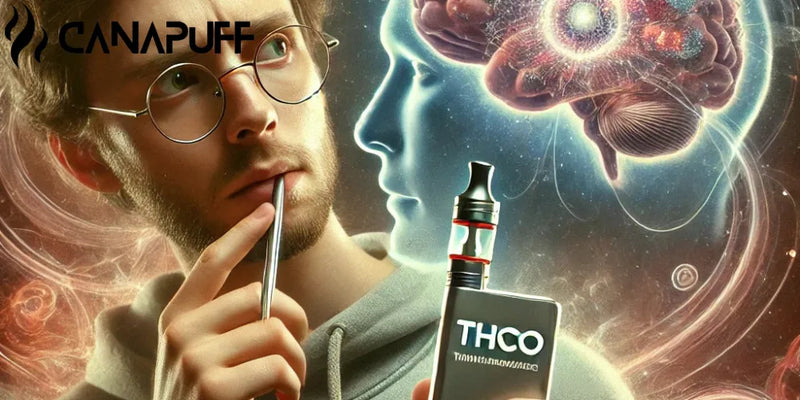

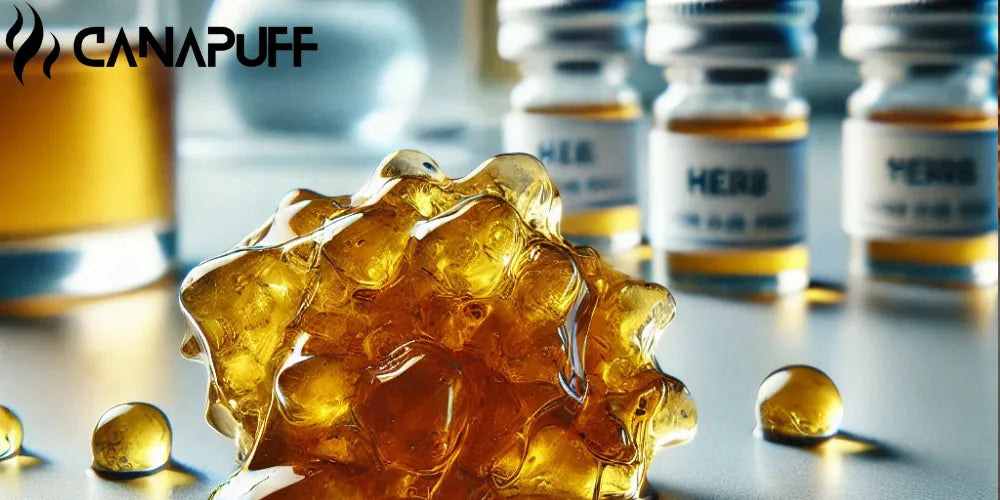

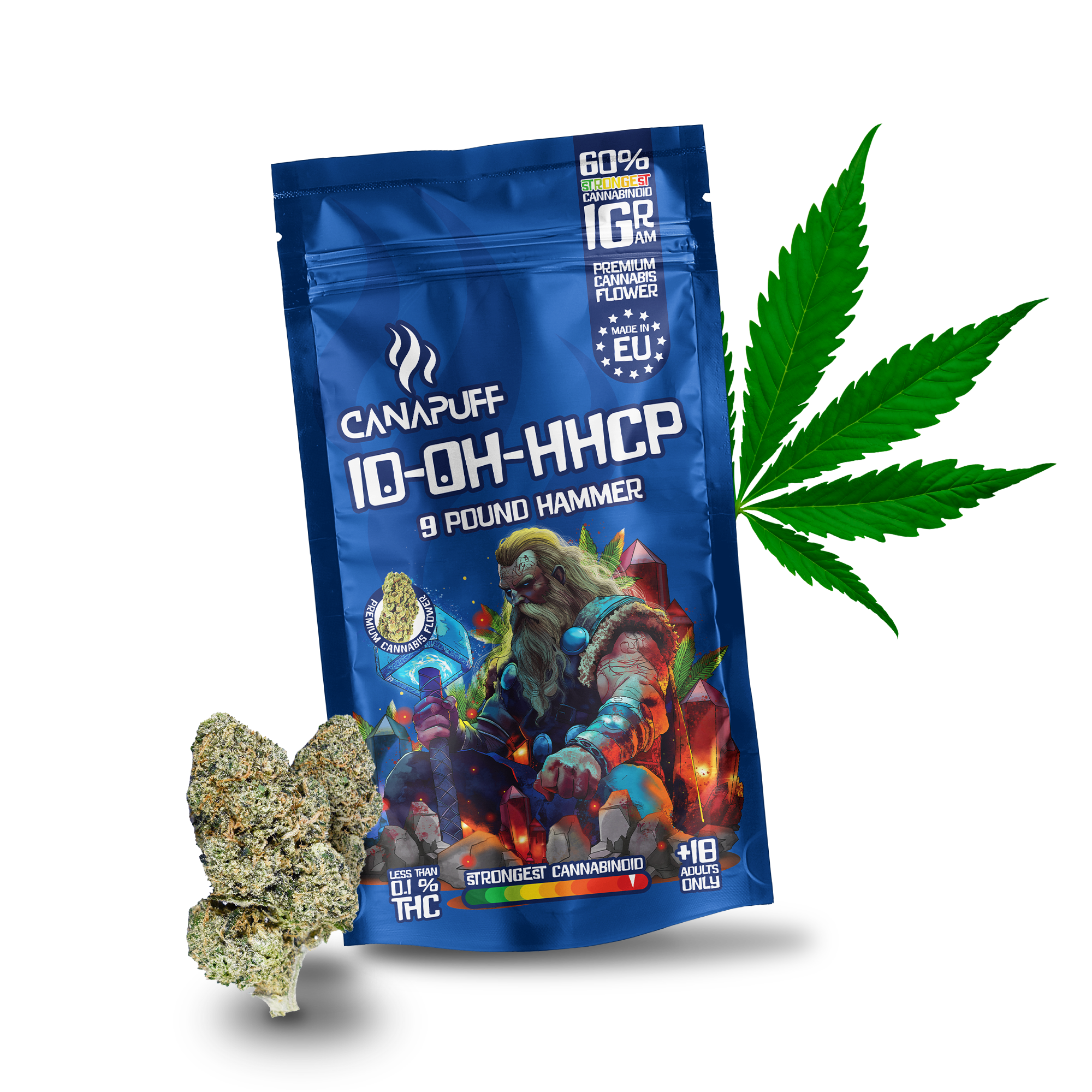
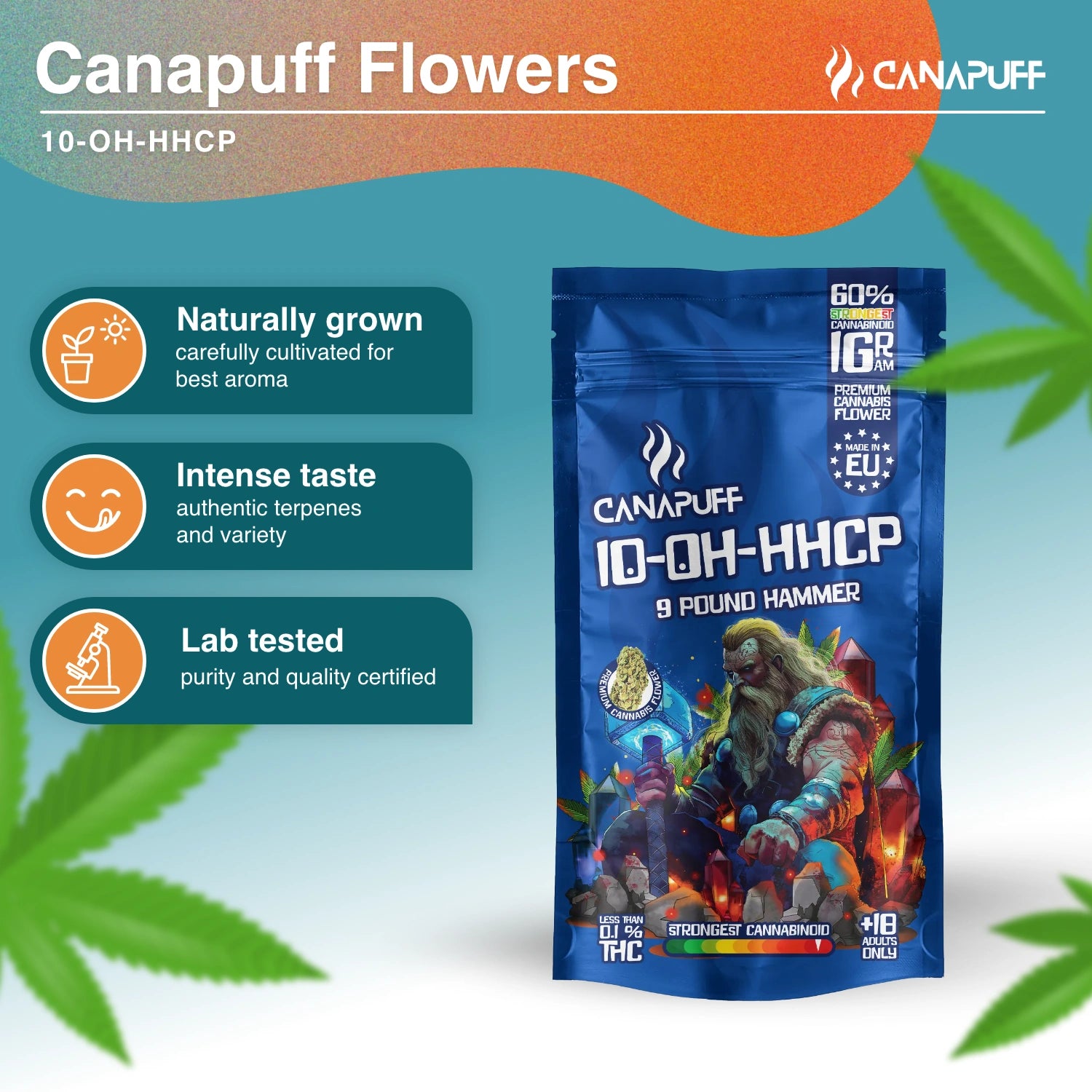
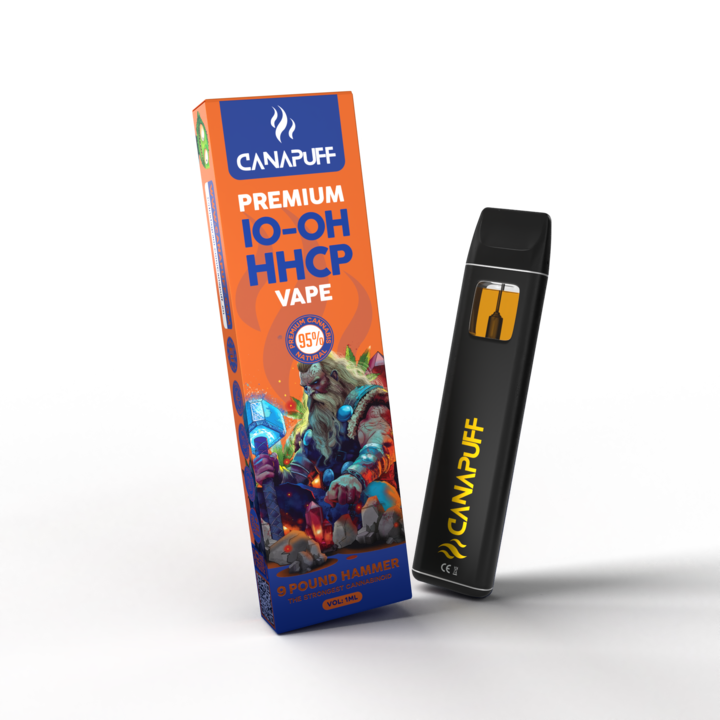
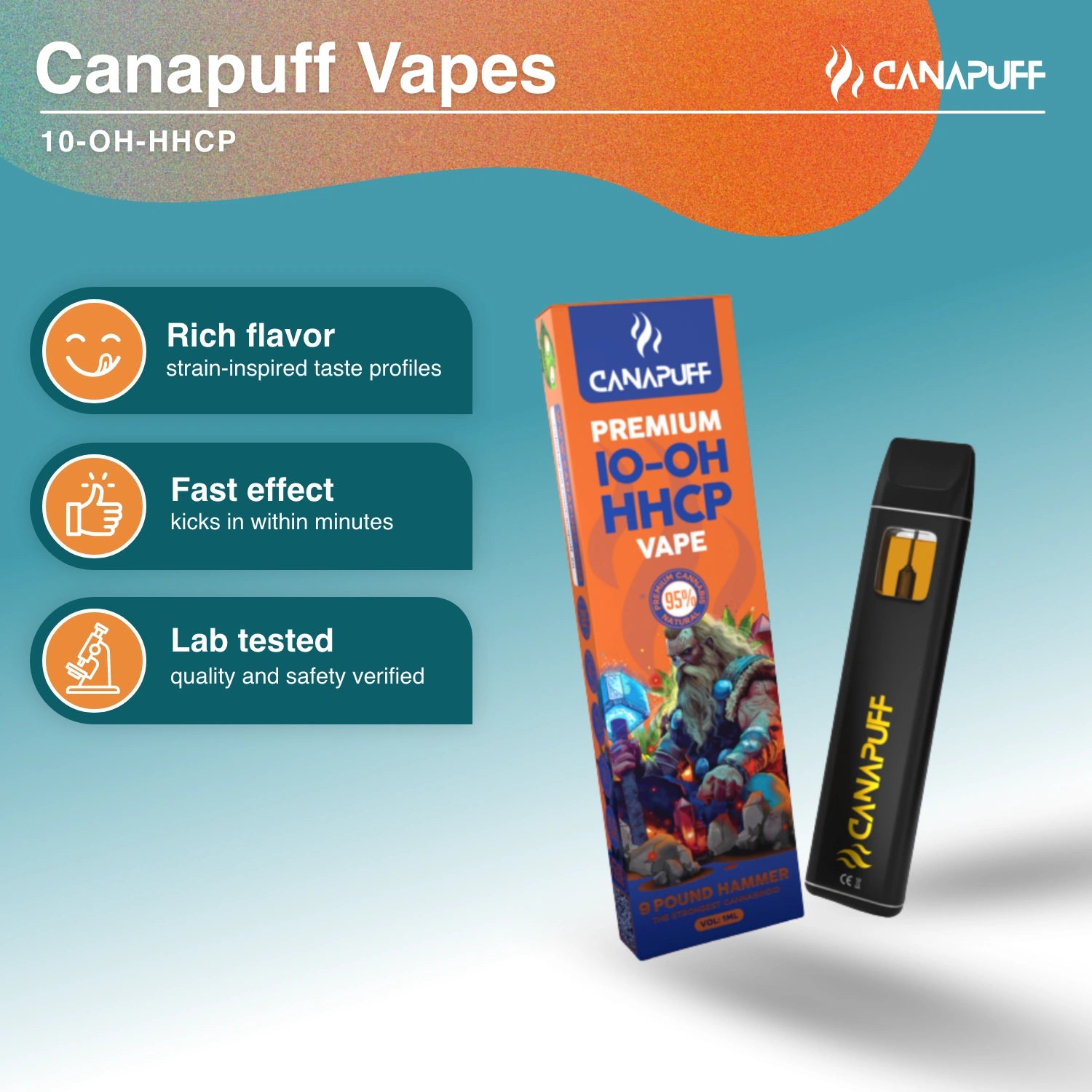
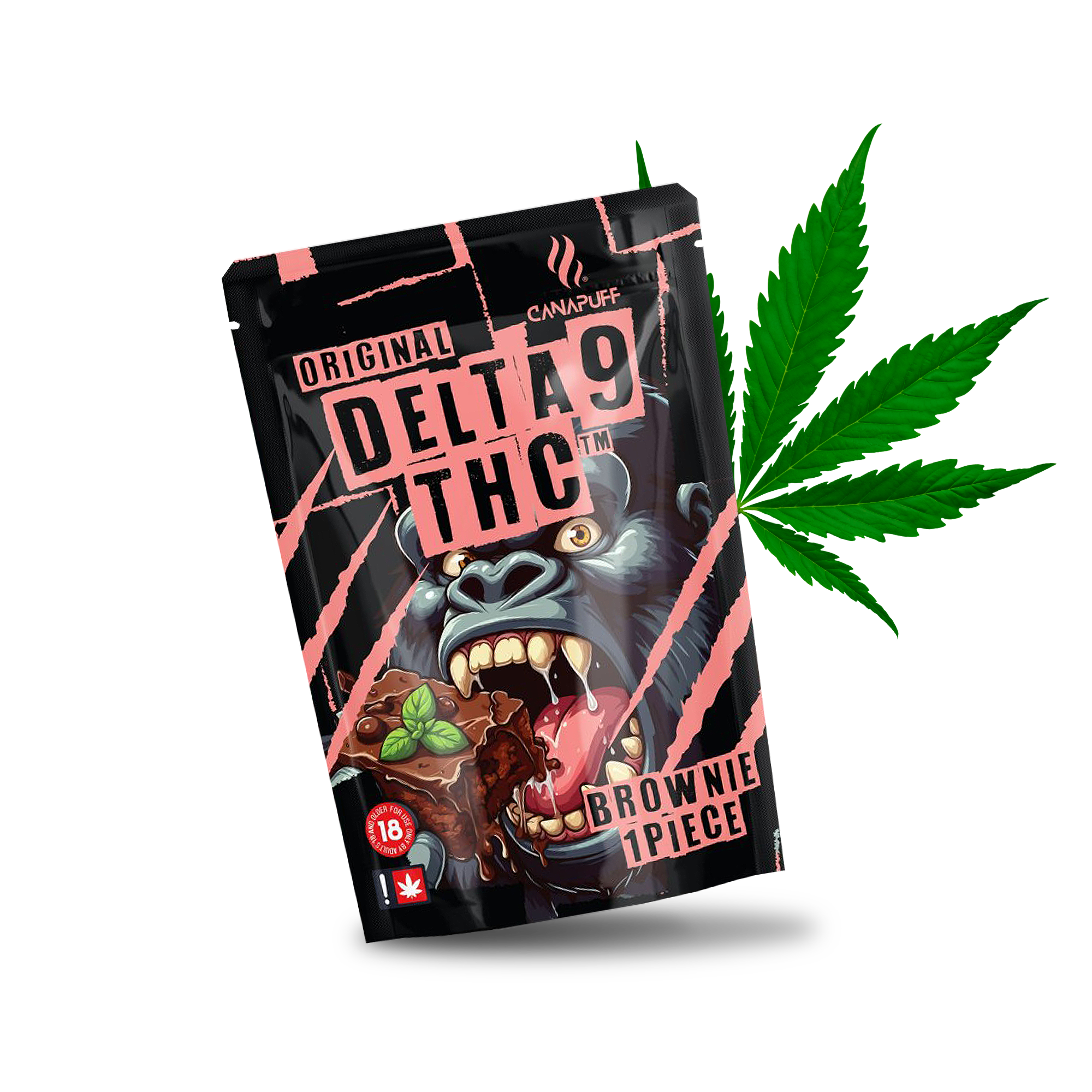




Hozzászólás
Ezt a webhelyet a hCaptcha rendszer védi, és a hCaptcha adatvédelmi szabályzata, valamint szolgáltatási feltételei vonatkoznak rá.